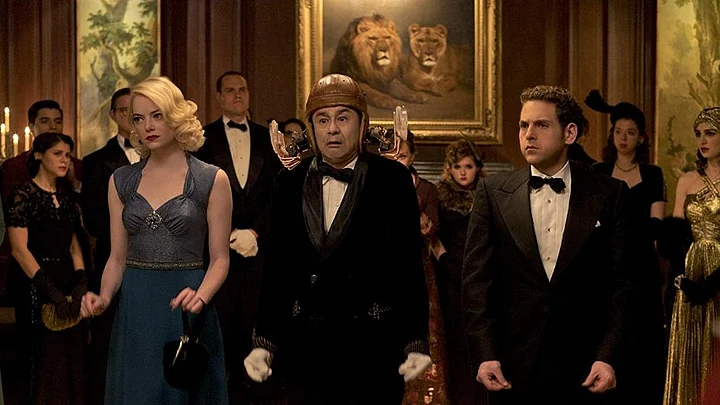What if the mind can be “solved”? What if pain can be “fixed”? It is the ultimate modern Atlantis, and for the characters in Netflix’s recently released limited series Maniac, it is more than just a quest. It’s about bridging the gap between the real and the unreal, sanity and madness.
Mental health is slowly and steadily becoming a part of our mainstream vocabulary, and our entertainment too reflects the change. But Maniac, directed by the incomparable Cary Fukunaga and starring Emma Stone and Jonah Hill, spins the very idea on its head, throwing at us that one existential question troubling much of modern life - what is “normal”?
Part coming-of-age, part medico-sci-fi, and part dystopic-drama, the 10-episode series zips through cinematic genres like a matryoshka doll to tug at a few core questions of the heart.
Maniac revolves around Annie Landsberg (Stone) and Owen Milgrim (Hill), two deeply troubled individuals with mental health issues who are drawn to a mysterious pharmaceutical trial.
Social pariahs battling different demons, they find themselves oddly connected as the planes of reality, imagination and drug and illness-induced fantasy slip and slide against each other.
Add to that visceral family pressures, a depressed super computer, dysfunctional scientists (brilliant turns by Justin Theroux and Sonoya Mizuno), and a setting in which if you're broke, you can sell yourself to an "Ad Buddy" (your bills get paid in lieu of a constant companion who spouts advertisements), or you can hire “friends” to spend time with (actually a reality in some parts of the world).
It’s a zany show, to say the least, and it takes you half the series to figure what exactly is happening. Makers Patrick Somerville and Fukunaga draw in the audience into a New York that’s only a little bit off and hence, vastly tantalising. But the real drama lies in the warped mental landscapes.
The actions of the “normal” are constantly juxtaposed with that of the “mentally ill”, and what jars is left for us, the audience, to infer from. In one telling scene, Owen laments, “I don’t know what is real and unreal any more”, and you realise, no one really does. The lies and treacheries of everyday life create an almost unbreachable void between what one is “supposed to” do, and what “is”, and the makers seem to be asking if those who can’t pretend that all is well with the world is actually labelled “ill”.
There’s also a deep dive into that modern visceral and all-engulfing epidemic - loneliness. No matter which side of the table you are on - the therapist’s or the therapy-seeker’s - everyone is battling a disconnection with the world around that is as frightening as it is devastating.
Love is not enough to survive this. Which is why when the connection between Owen and Annie gets a name in the finale episode, it rings so true.
While a couple of episodes towards the end seem a little too self-indulgent, Maniac is a surprisingly tight-notched show, given the innumerable journeys it undertakes into the netherworld of the mind. Backed by some sharp writing, cinematography (Darren Lew), and music (Dan Romer), it is held together as much by Fukunaga’s magic reins as the performances that walk the tightrope between funny and eccentric, and yet hit the emotional chords just right.
Jonah Hill, playing the defeatist, cowardly but supremely honest Owen, invests his character with an oceanic depth under the dead-pan, eyes-averted face. Emma Stone’s fiery, conniving, self-mutilating Annie is his perfect foil.
Justin Theroux, Sonoya Mizuno and Sally Field too bring to life seriously weird but delightful characters that leave you ruefully chuckling long after the end credits roll.
Weird is wonderful after all.
(At The Quint, we question everything. Play an active role in shaping our journalism by becoming a member today.)
